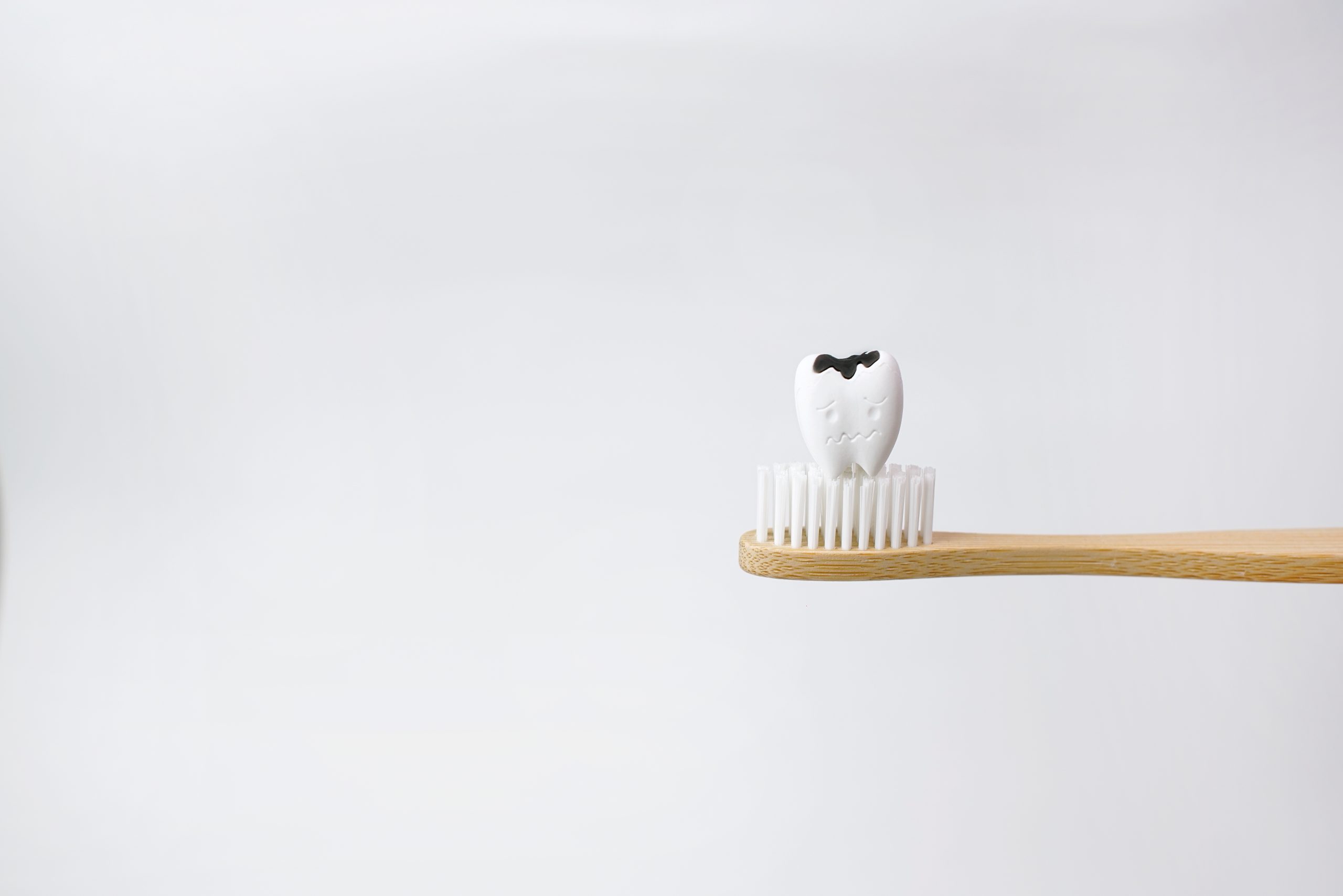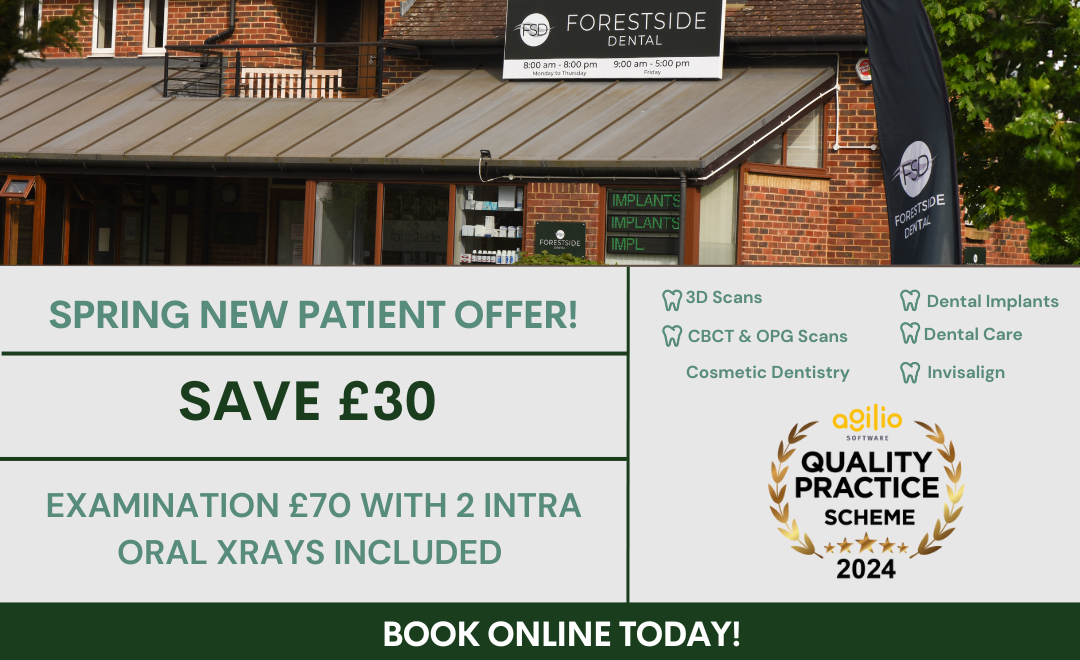Cavities/tooth decay is the most common dental health issue. A combination of causes will permanently damage the hard surface of your teeth. Cavities/tooth decay is commonly caused by plaque, diet and poor oral health, which leads to tiny openings or holes on the hard surface of your teeth.
Regular check ups at Forestside Dental or your local dental practice allow early cavities/tooth decay to be caught and treated before any unreversible dental issues arise. You may not even realise that you’re experiencing symptoms of a cavity/decay. That’s why Forestside’s expert team have put together the common symptoms and causes of cavities/tooth decay so that you can maintain a healthy smile.
Symptoms of Cavities/Tooth Decay
There are cases where cavities/tooth decay doesn’t present with obvious symptoms and may even be pain free. Yet, the following symptoms are what you need to look out for, as recognising the early signs can prevent long and costly treatments.
Toothache
The most common symptom that’s a sign of dental issues is a toothache. If you’re experiencing continuous pain or occasional sharp pain, then it is likely that you have an undiagnosed cavity. Toothache is commonly present when chewing or consuming hot or cold drinks. This is due to inflammation and sensitive nerves, and blood vessel exposure.
Toothache is extremely uncomfortable, so we recommend booking in with a reliable dentist at Forestside or your local practice. So we can determine if your toothache is a symptom of cavities/tooth decay and if nerve tissue has been exposed, it is vital that you receive prompt treatment.
Tooth Sensitivity
Similar to a toothache, tooth sensitivity is a common symptom of cavities/tooth decay. Tenderness or pain when chewing or drinking something cold, hot or sweet is a sign of inflammation. It may be inflammation, but it can also be a strong indicator of worn enamel, which is why your dentist should determine the reason for your teeth' sensitivity.
Tooth Discolouration
The presence of grey, brown or black spots is the strongest indicator of cavities/tooth decay. When plaque builds up, it eats away at your enamel and eventually turns grey or brown. If a cavity has worsened, it will eventually expose your tooth’s naturally darker internal dentin.
Speak to the team at Forestside or your local practice if you notice any discoloured spots on your teeth.
Bad Breath or Taste
If you have an unpleasant taste or bad breath even after brushing and endless strips of chewing gum, you will likely have a cavity. With cavities/tooth decay, bacteria can build up and become trapped, which makes it more difficult to maintain fresh breath and a clean mouth.
If this is a recurring symptom, then book a check up today.
Causes of Cavities/Tooth Decay
Sugar
The most common cause of cavities/tooth decay is a sugary diet. I’m sure it’s not the first time you’ve heard that overindulging in fizzy drinks can damage your teeth, but we’ll say it one more time anyway. Fizzy drinks, even sugar free alternatives, should not be consumed in high quantities as they can lead to acid erosion – eventually resulting in cavities/tooth decay.
As well as this, a high intake of sugary foods can also permanently damage your teeth. Extensive research has shown that sugar is directly linked to plaque build up and cavities/tooth decay. So decreasing your sugar intake or opting for a sugar free alternative will reduce your chance of oral health issues.
Smoking
Due to smoking, countless issues can arise with your oral health. Smoking introduces lasting bacteria into your mouth, increasing your risk of cavities/tooth decay and gum disease. For your oral and physical health, Forestside encourages everyone to quit smoking.
Poor Oral Hygiene
Your routine should be to floss, rinse and brush. It is essential that you floss your teeth at least once a day to remove trapped food and prevent the build up of plaque. You should also brush twice daily with fluoride toothpaste and never rinse your mouth with water or mouthwash afterwards. Doing so can wash away the fluoride, which leaves your teeth unprotected from bacteria. By flossing, rinsing and brushing in that order, you can protect your teeth and lower the risk of cavities/tooth decay.
Prevent or Treat With Forestside
At Forestside dental, our experienced team can help you prevent cavities/tooth decay. We get to know your lifestyle and habits to offer tailored advice. With our range of dental care treatments, we ensure that our patients maintain healthy, pain free smiles!
We also offer a variety of dental care plans, so your teeth and bank balance can remain healthy. For a reliable and trustworthy local practice that you can depend on, book an appointment with Forestside today!


